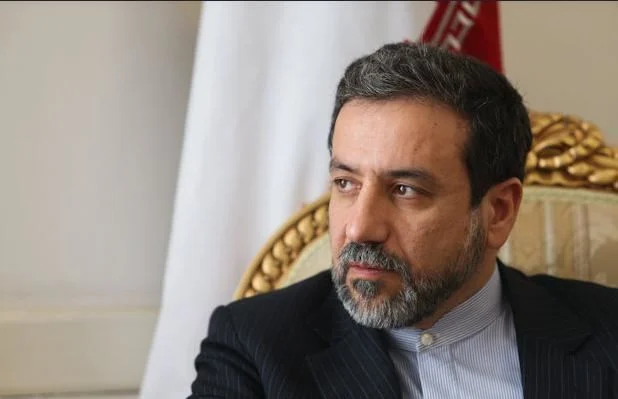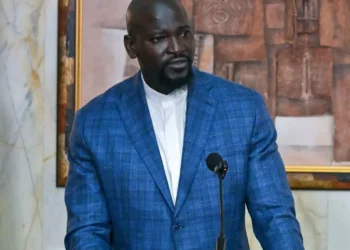Iranian Foreign Minister, Abbas Araghchi is scheduled to meet counterparts from France, Germany and the United Kingdom for talks on Iran’s nuclear programme and ending Israel’s attacks.
The scheduled meeting is the first major diplomatic effort since Israel launched strikes on Iran last week.
Israel has repeatedly said its series of strikes is a preemptive move to stop Iran from obtaining nuclear weapons.Iran denies it is building nuclear weapons and insists that its nuclear programme is peaceful.
The International Atomic Energy Agency (IAEA) said it has found no evidence that Iran was building such weapons.
The planned talks in Switzerland is set to involve French Foreign Minister Jean-Noel Barrot, British Foreign Secretary David Lammy, German Foreign Minister Johann Wadephul, and European Union foreign Policy Chief Kaja Kallas.
Kallas and the Ministers from the three European countries – known as the E3 – spoke to Araghchi earlier this week and discussed the need to return to the negotiating table and avoid further escalation.
Kallas, in coordination with European countries, has insisted that diplomacy remains the best path towards ensuring that Iran does not develop a nuclear bomb.
The talks will be held in Geneva, where an initial accord between Iran and world powers to curb its nuclear programme in return for lifting sanctions was struck in 2013, before a comprehensive deal in 2015.
Trump left the Iran nuclear deal during his first term as president in 2018, defying last-ditch diplomatic efforts by his European allies to convince him otherwise.
Negotiations between Iran and the US had been taking place when Israel launched what it called Operation Rising Lion against Iran’s nuclear facilities and ballistic capabilities on June 12.
The conflict erupted with a surprise wave of Israeli attacks targeting Iranian nuclear and military sites and killing top generals and nuclear scientists.
At least 639 people, including 263 civilians, have been killed in Iran and more than 1,300 wounded since Israel launched a surprise wave of air raids against Iran a week ago, according to the US-based rights group Human Rights Activists.
In Israel, at least 24 people have been killed and hundreds of others wounded in Iranian attacks, according to Israeli health authorities.

Speaking before a meeting with Iranian Foreign Minister Abbas Araghchi in Geneva, Germany’s Foreign Minister, Johann Wadephul said that he and his counterparts from the UK and France, along with European Union foreign policy chief Kaja Kallas, had “always said that we are ready to talk.”
“This requires Iran’s serious willingness to renounce any enrichment of nuclear material, which could lead to nuclear weaponisation.
“This also requires that the missile programme can be included. If this serious willingness exists, then the consequence on our part will also be that we are prepared to hold further talks.”
Johann Wadephul
Iranian Foreign Minister Not Prepared To Hold Negotiations
Meanwhile, Araghchi said that he is in Geneva to listen to the Europeans, but will not negotiate while Israeli strikes on Iran continue, and that Iran’s missile programme is non-negotiable.
Foad Izadi, Professor of International Relations at the University of Tehran, iterated that it was clear that Araghchi was not prepared to hold any negotiations while Israeli strikes were continuing.
“When you negotiate, it’s give and take. Iran cannot engage in that style of give and take when we have bombs falling” on Tehran and other parts of the country. This is force used to gain concessions.
“Iran is an independent country, a very old country and it’s not going to do that.”
Foad Izadi
He said that Araghchi was in Geneva “to have talks, which is different from negotiations.”
He expected the Iranian Foreign Minister to remind the European officials that the type of concessions they wanted from Iran, such as giving up its ballistic missiles, is “not going to happen, because Iran cannot be defenceless.” He stressed, “If Iran did not have ballistic missiles, I think you would have Israeli and American soldiers in Tehran today.”
Izadi added that he also expected Araghchi to stress “some of these facts” to his counterparts, and then it was “up to them to … go back and come up with a setting where you can negotiate.”
READ ALSO: GOIL Posts 55% Profit Surge, Unveils Bold Agenda for 2025



















